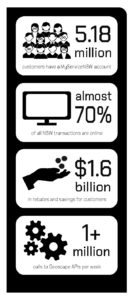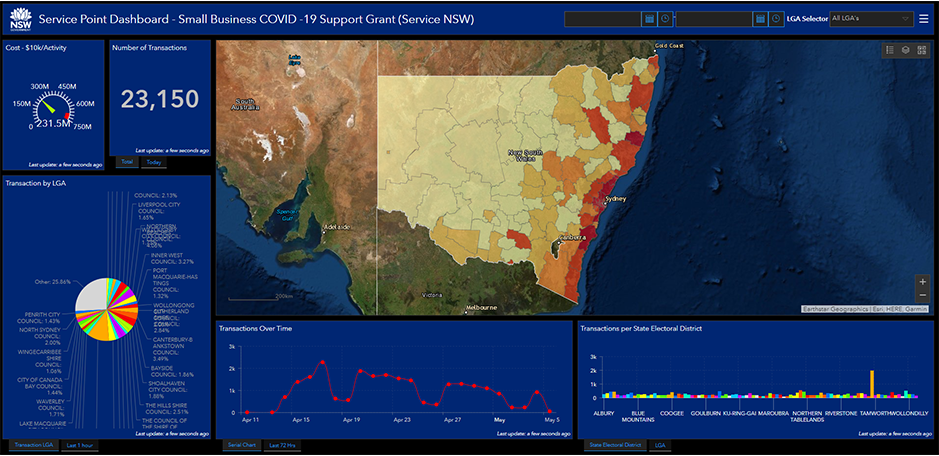1,000,000+ API calls a week enable customer address verification based on data that’s updated daily
Many governments rely on online transactions to get support and services to customers.
With millions of online government forms being completed every day, the public expects a quick and seamless process. From registering a birth to applying for a fishing licence, accurate validation of address data helps users progress smoothly through a form all the way to ‘submit’.
When it comes to whole-of-government address management, NSW Government agencies and departments turn to DCS Spatial Services. A trusted unit of the NSW Department of Customer Service, Spatial Services enables fast, collaborative and efficient digital solutions across the state.
At the core of DCS Spatial Services’ address verification services are Geoscape APIs.
In this case study, you will learn about
- challenges faced by the team at DCS Spatial Services
- solution built using Geoscape APIs, and
- results achieved.
Download our case study to learn more.
“We can buy as one entity for the NSW Government and it makes governance easier with one account holder.”
Dr Greg Windsor, Manager of the Administrative Spatial Program, Spatial Services, NS

